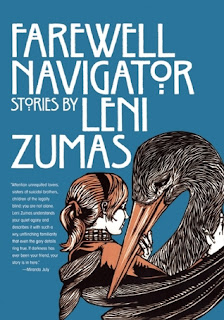Driving home from work, I've got the classical station on so I can think through what I might say for the radio taping tonight. I'm going to be appearing on KBOO's "Bread and Roses" program, the country's longest-running feminist radio show, and I'm very excited to be appearing alongside three badass woman writers, discussing feminism, womanhood, and our respective parts in the anthology I edited, City of Weird.
I'm feeling quite badass, myself, with all my badass woman musings - until the car behind me rams into my bumper. I'm thrown forward, a quick fishtail as I slam on the breaks, and all of my woman-power feelings fly right out the window, along with the decidedly girly squeak that just jumped from my mouth on impact.
Now I'm pulled over on the side of Burnside Bridge yanking stuff out of my glove compartment, looking for the insurance card, looking for that little pad of paper, looking for a pen. Finding ice scraper. Hot pink flashlight. Envelope full of miscellaneous papers that aren't the one I need.
And my brain has gone where my brain tends to go in uncertain situations, to that place where I feel like a loser, and maybe it's all the feminism musings, but all I can think about is how I'm a woman.
Does the guy in the other car think it's my fault because I'm a woman driver?
My hands are shaking - am I weak, scared, wimpy because I'm a woman?
Where the hell is the insurance card and do I call the police or do I not call the police and what information do I need to get from the guy and am I a scatterbrain because I'm a woman?
Am I going to burst into tears because I'm a woman?
Why do I sometimes think this way, stop thinking this way, it's wrong, it's untrue, and it's stupid, stupid, stupid! Am I being stupid, stupid, stupid because I'm a woman?
The cars are going by so steadily on my left that I can't open the car door sitting here pulled off into the bike lane of the bridge, and I finally climb like an idiot over the parking brake, over the shopping bag and girly purse on the passenger seat, climb clumsy out the door into the cold dark.
The other driver is a woman. Early twenties with a pretty face and short brown hair, big eyes at me: "Oh my god, are you OK? I'm so, so sorry! Are you OK?"
I'm saying I'm OK and she's asking again and I'm saying it more emphatically, still climbing out of the car. Somehow this strikes me as just as feminist as all of my feminist musings from before: all I want to do is reassure her and make her feel better, and all she wants is for me to be OK.
I straighten up out of the car, and I don't know why I do it, and it's weird when I do it, but I do it anyway, the first thing I do after getting rear-ended, I throw my arms around this woman I don't know and give her a hug.




























 a
a 












